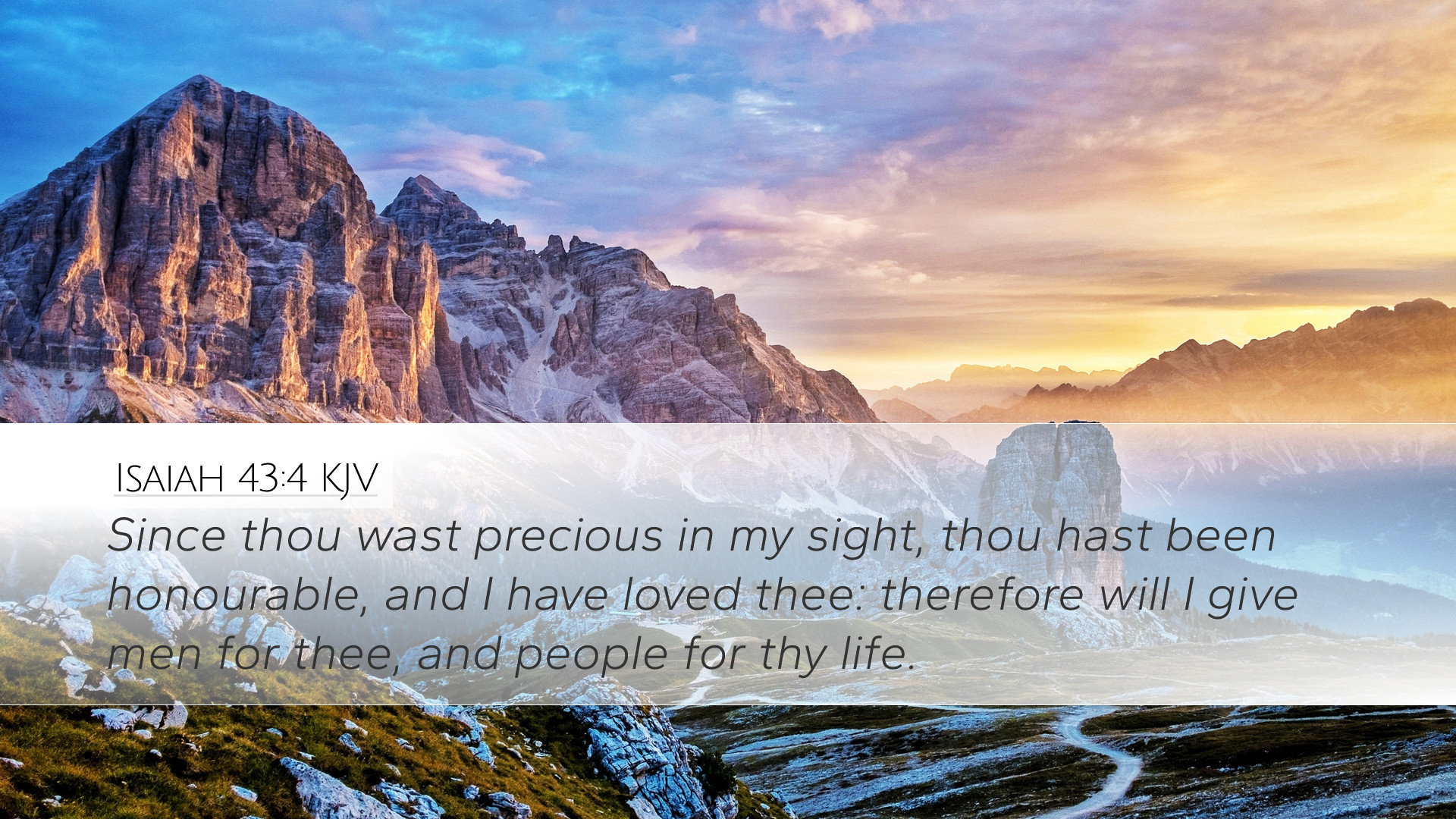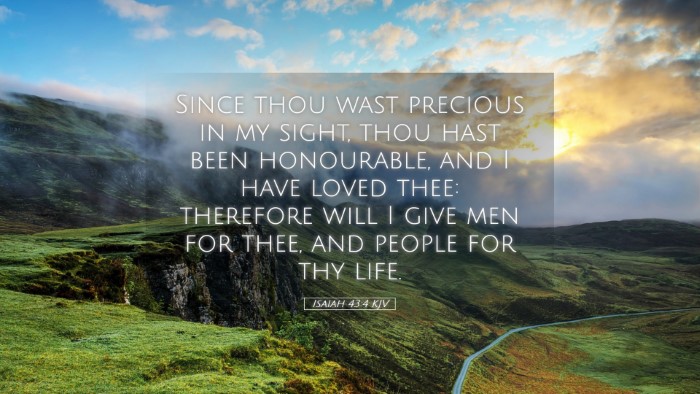Commentary on Isaiah 43:4
Text of Isaiah 43:4 (KJV): "Since thou wast precious in my sight, thou hast been honourable, and I have loved thee: therefore will I give men for thee, and people for thy life."
Introduction
The verse Isaiah 43:4 encapsulates the profound love and value that God places upon His people. This commentary seeks to explore the theological implications and pastoral applications of this scripture, drawing from insights provided by esteemed public domain commentaries, including those of Matthew Henry, Albert Barnes, and Adam Clarke.
The Value of God's People
In Isaiah 43:4, the term "precious" conveys the unique worth and significance that God attributes to His people. Matthew Henry asserts that this asserts the intrinsic value of Israel, which extends to all believers today. The evaluation of being "precious" is rooted in God’s affection and choice.
- Divine Affection: The phrase "I have loved thee" illustrates God's steadfast love, a theme that runs throughout scripture (Romans 5:8). God's love is not contingent upon the worthiness of the recipient but is an expression of His divine nature.
- Covenantal Relationship: Albert Barnes emphasizes the idea of covenant, indicating that God's declaration of love is tied to His promises and His relational commitment to His people. The love shown is linked to God’s covenant with Israel, reminding readers of His faithful character.
- Embodiment of Honor: “Thou hast been honourable” speaks to the dignity bestowed upon God’s people. Adam Clarke notes that this signifies not just inherent worth but reflects the nobility that should characterize those who are called by God.
Theological Implications
The verse serves as a cornerstone for understanding God's redemptive purpose. It affirms the doctrine of election and the special place believers hold in God's plan.
- Election and Predestination: The notion that God esteems His people reflects the doctrine of election, where God's selection is deliberate and purposeful. This understanding nudges believers toward gratefulness and humility.
- Substitutionary Atonement: "Therefore will I give men for thee" signifies God’s willingness to sacrifice for His chosen. Commentators argue that this prefigures the ultimate sacrifice of Christ, who gave Himself for humanity, embodying God's love and justice.
Pastoral Applications
This verse holds practical ramifications for clergy and believers alike:
- Identity in Christ: Understanding oneself as "precious" to God shapes one's personal identity, enhancing self-worth. Pastors should encourage congregants to see themselves through God’s eyes, fostering a community rooted in love and acceptance.
- Encouragement in Trials: For those facing adversity, the reminder of being valued can bring comfort. Clergy can use this verse to uplift those who struggle with feelings of insignificance or despair.
- Calls to Holiness: Recognition of God’s love imposes a call for believers to reflect that love through their actions. It inspires ethical living and spiritual faithfulness as a response to God’s graciousness.
Reflections on Salvation
Isaiah 43:4 also speaks to the theme of salvation:
- Redemption and Deliverance: The promise “I will give men for thee” indicates God's active role in redeeming His people. Commentary notes show that just as God delivered Israel, so too does He intervene in the lives of His followers today.
- Hope for the Future: The redemptive work of God offers hope in present troubles. For pastoral ministry, this verse can be a source of hope, emphasizing that God values His people and actively works for their good.
Conclusion
Isaiah 43:4 is rich with meaning, providing both comfort and a call to action for believers. The insights from traditional commentaries demonstrate the depth of God’s love and the significance of His people in His divine plan. As pastors, theologians, and scholars reflect on this text, they are reminded of the profound truth that we, too, are "precious in [God's] sight," called to live in response to such incredible grace.


